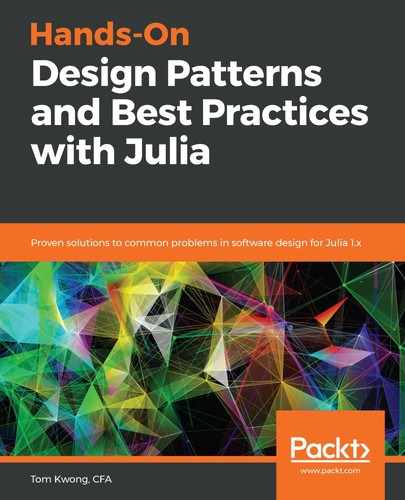Julia's dispatch mechanism is unique not only because of its multiple dispatch features, but also the way that it treats function arguments dynamically when deciding where to dispatch.
Let's say we want to randomly pick two objects and check whether they collide. We can define the function as follows:
# randomly pick two things and check
function check_randomly(things)
for i in 1:5
two = rand(things, 2)
collide(two...)
end
end
Let's run it and see what happens:

We can see that different collide methods are called depending on the types of the arguments that are passed in the two variable.
Multiple dispatch is a powerful feature. When combined with custom data types, it allows the developer to control which methods are called for different scenarios. If you are more interested in multiple dispatch, you can watch a video on YouTube with the title The Unreasonable Effectiveness of Multiple Dispatch. It is a presentation by Stefan Karpinski, recorded at the JuliaCon 2019 conference.
Next, we will look into how function arguments can be parameterized for additional flexibility and expressiveness.
